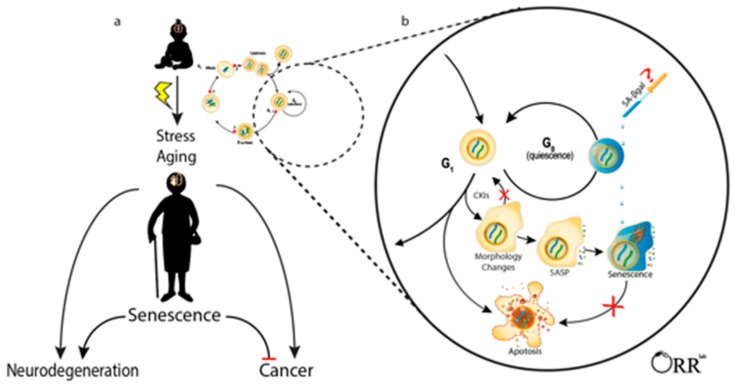Figure 1.
Cellular senescence in mitotically competent brain cells may impact risk for developing cancer and neurodegeneration. (a) The accumulation of cellular damage throughout the lifespan induces cell stress responses that impact cell fate decisions. Neurodegeneration increases with age and inversely correlates with risk of developing age-associated brain cancer. Cellular senescence may influence this clinical observation. (b) Mitotically competent brain cells may enter quiescence, a reversible G0 arrest. Damaged cells may undergo apoptosis, other cell death processes or senescence. In senescence, the cell permanently exits the cell cycle, upregulates cyclin-dependent kinase inhibitors (CKIs), exhibits morphological changes, acquires a senescence-associated secretory phenotype (SASP), and upregulates senescent cell anti-apoptotic pathways (SCAPs). Senescence-associated beta galactosidase (SA β-gal) staining can be used to identify some senescent cells but also labels some quiescent cells and requires careful methodological techniques and interpretations. For simplicity, senescence was illustrated at G1; however, cells may enter senescence arrest at G0 or G2 as well [64].

